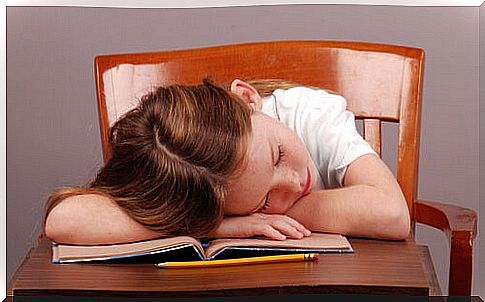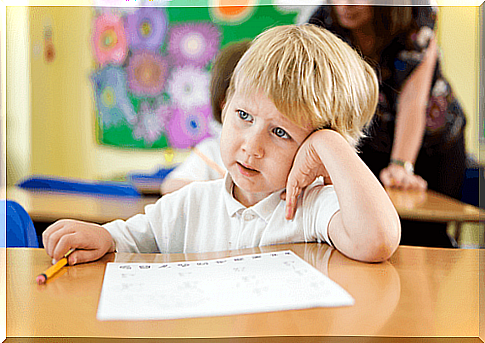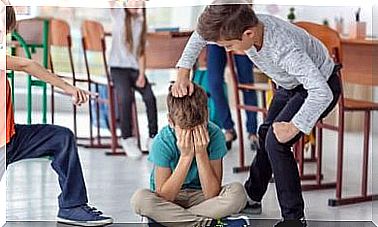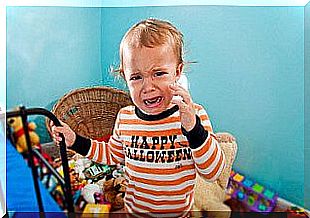My Child Gets Distracted In Class: What Should I Do?

There are many articles that try to address this issue from different points of view. Below, we will provide you with a brief explanation of the difference between loss of concentration and attention deficit (ADD), as well as recommendations and exercises to do at school and at home if your child is distracted in class .
My child gets distracted in class: what should I do?
Difference between loss of concentration and attention deficit
Before addressing this issue, it is important to make a distinction between a child who loses concentration in the classroom due to external stimuli and one who actually suffers from a disorder called attention deficit, or ADD from its initials.
The first condition is more common than parents realize and tends to never last for a very long time. This is usually a temporary situation and, if given the necessary stimuli, children immediately regain the ability to concentrate.
In the second group there is only 5% of the child population. Attention deficit is permanent, but children in this group need concentration exercises, even more than the former.

Recommendations and exercises to regain concentration
As we have seen, concentration exercises are useful both for children with temporary loss of concentration from external stimuli and for children with ADD. For both, it is important to carry out strategies to be developed in the classroom and then reinforced at home.
Below, we will explain the actions that can be taken in both areas:
Ideas for school
It is important that you talk to his teachers to plan a strategy for the distracted child together. In this sense, the most common actions that include teachers’ current strategies to get the child’s attention are:
- Place the child in the first rows in front of the teacher’s desk.
- Keep him away from the more talkative children, but still allow him to maintain interaction with classmates.
- Constantly talking to him while looking into his eyes, this will cause the child to feel the need to be careful.
- Ask him surprise questions frequently.
However, not all of these ideas need to be concretized in school. Certain actions must also be taken to strengthen the child’s ability to be attentive.
Ideas for home
There are many options for strengthening children’s attention at home. We will start first with the actions related to the study or review of school activities.
How to do your homework?
It is essential that the child who has attention problems has a study space to do their homework. It must have a dedicated desk or table and an ergonomic chair, it must have good lighting and must not have toys or distracting elements around it.
Similarly, you need to turn off the TV and move it away from your tablet or mobile phone while studying. Do not stand beside him watching him pass by; instead walk around the room, go out and go back to pass him. This behavior is similar to that of the teacher in the classroom and will feel your support in doing her homework.
Also, tell him to always start doing his homework with the ones that are most difficult for him. That way, he won’t get frustrated or leave his seat.
Always congratulate yourself when your homework finishes. Thus, he will feel encouraged to continue studying and doing his homework; he will also feel proud of his effort.

Extracurricular activities
- Enroll him in music lessons, such as piano or violin. Activities aimed at motor skills stimulate patience and concentration.
- Have the child color mandalas or take them to drawing class.
- Give him a puzzle and help him solve it.
- Play chess with your child.
- Have him cut out some figures; this activity also stimulates his attention.
With these simple actions, the child’s attention will increase a lot. Remember that if your child is distracted in class, and if you have any doubts about attention deficit, you can have your child take a test to rule out this condition through your pediatrician, psychologist or neurologist.








